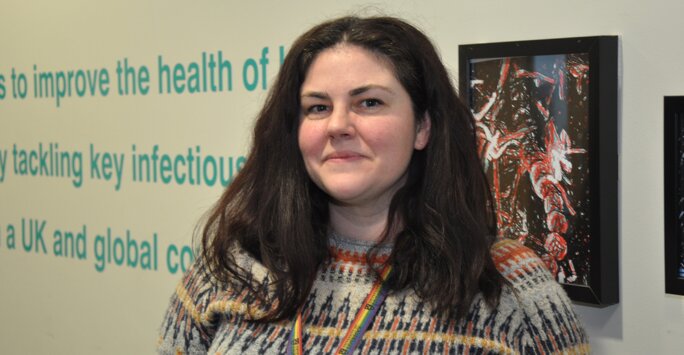
To celebrate Microbiome Month, this edition of Spotlight focuses on Professor Jo Fothergill, Director of the Microbiome Innovation Centre (MIC) and Chair of Medical Microbiology.
The challenge
Cystic fibrosis (CF) is an inherited condition affecting 1 in every 2,500 babies born in the UK. It leads to the build-up of sticky mucus in the lungs and digestive systems and causes long-term problems with lung infections and digesting food.
The major pathogen in cystic fibrosis lung infections is Pseudomonas aeruginosa (P. aeruginosa), which is commonly found in soil and water and most often causes infections in the human body, for example, blood, lungs and other organs.
There are over 100,000 people with cystic fibrosis worldwide and even more with non-CF bronchiectasis. In these people, lung infections are often lifelong and highly resistant to treatment.
Specific areas of research to address:
- Modelling multispecies interactions to advance our knowledge of how microbes interact during infection and the importance of these interactions
- Understanding how bacteria adapt and change during infection, particularly changes in virulence and antimicrobial resistance, using ’omics approaches
- Novel therapeutics to treat infections
Research in focus
Professor Jo Fothergill’s research focuses on this bacterium and how it interacts with other species during infection. Understanding these interactions could be key to understanding the evolution of successful pathogens and developing appropriate therapeutics.
Understanding how pathogens cause disease and devising novel methods for control and treatment are key issues in the face of rising antibiotic resistance and the limited availability of new drugs.
Antimicrobial resistance (AMR) is a global issue and is increasingly becoming a challenge when it comes to treating those with P. aeruginosa infections and new treatments are necessary to combat AMR as well as understanding how these pathogens evolve.
Her research uses a combination of sequencing, culture and relevant models to study complex communities in respiratory infections and is currently working on a large metagenomics sequencing project on respiratory samples from people with cystic fibrosis and has used 16S rRNA gene sequencing to monitor community changes in the lungs during clinical trials. She has also harnessed phage, a key member of the microbiome, as a novel therapeutic approach.
Professor Jo Fothergill is the Director of the University of Liverpool’s Microbiome Innovation Centre and holds various board roles including the CF Syndicate in AMR, the CF Trust Scientific Advisory Board and the UK CF Infection Biorepository.
Microbiome Innovation Centre
The Microbiome Innovation Centre (MIC) combines state-of-the-art facilities with diverse expertise from numerous disciplines including ecological, biological, clinical and veterinary science. The MIC works with industrial, clinical and academic partners, nationally and internationally, working in collaboration to accelerate microbiome research and generate impact from discovery science.